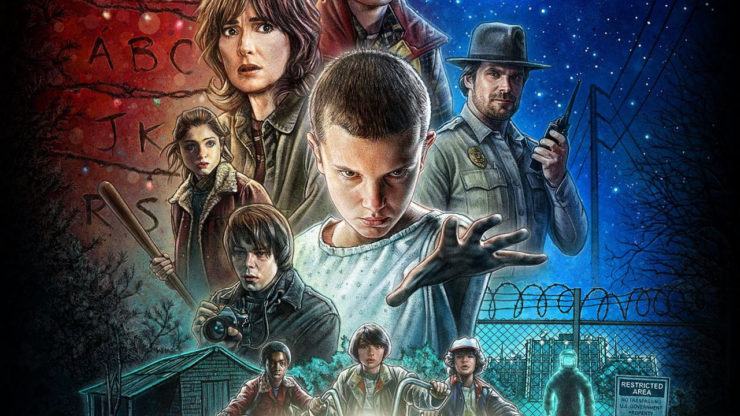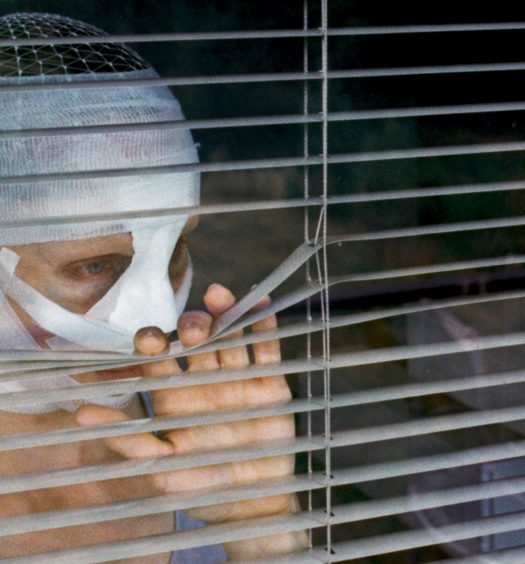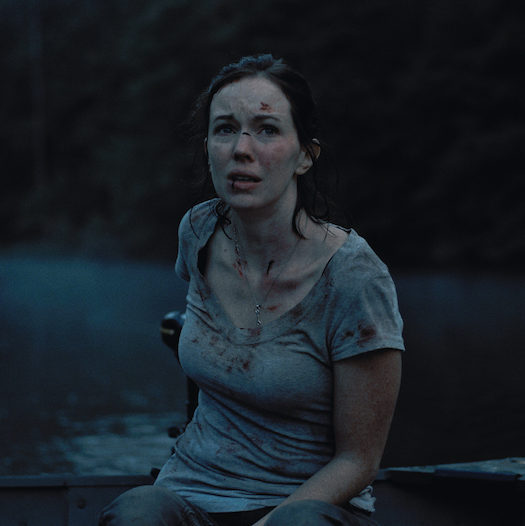The Insider: Adam Cesare Thinks the Genre’s Future is in its Past
Last week, I forgot to put my phone on “do not disturb” and got a text message that woke me up:
“Yo, have you heard of Stranger Things, on Netflix?”
Yes, friend-o, I’d heard of it several times before I received your late-night text.
But that’s the kind of show that Stranger Things became in the first 24 hours it was available to stream. People were coming out of the woodwork to tell me about it, and I bet the situation was similar for you. It’s a show with crossover appeal, so that many of the “normals” I know (those who don’t pray at the altar of horror) had to get in touch with me and get my thoughts on this genre thing that had spilled over into their awareness.
And while some of our horror-loving buddies can get negative and insular, looking to keep the genre “underground” and “independent” and other adjectives that are pretty meaningless when we’re talking about commercial art: I love it when people outside the community take an interest in something genre. If anything it makes small-talk at parties a little more bearable.
but it’s also got a trans-dimensional flower-faced monster eating people (and deer) left and right. So it’s horror.
Before we go any further, we’ve gotta establish that: yeah, Stranger Things is most certainly genre. It’s got cross-genre elements (some Amblin kid-adventure DNA, a streak of sci-fi conspiracy), but it’s also got a trans-dimensional flower-faced monster eating people (and deer) left and right. So it’s horror.
I make the claim in the headline that “the horror genre’s future is in its past” and then start out talking about Stranger Things, so you might think that I’m going to suggest that Stranger Things succeeds because of its 1980s setting. It’s got endless needle-drops and nostalgic reverence for the films of that decade… but I don’t think that’s why the show’s good.
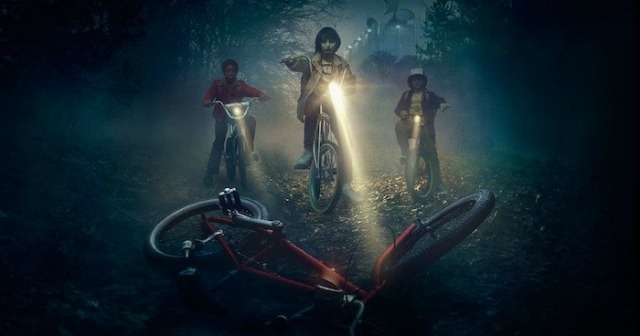
Sure, “It’s E.T. meets Close Encounters hunting Pumpkinhead… also Lydia Deetz is there!” is a pretty sure-fire way to get most nerds to check out the show. But I think after the first two episodes all that period nostalgia kinda becomes set-dressing: it doesn’t matter as much. What makes Stranger Things work is that it tells a complete, compelling narrative over 8 one-hour episodes. It never feels rushed or stretched to fit its runtime (remarkably it never drags, where the 13 episode first season of Daredevil felt like it took roughly six years of my life to watch) (Editor’s Note: Don’t bad mouth Daredevil, you savage).
No, the important thing for this article is that Stranger Things takes the structure of its successful story not from the movies it’s visually riffing on, but from the novels of the same era.
I’m certainly not the first person to notice this—there have been a bunch of critics labeling it a variation on “the best adaptation of a horror novel that doesn’t exist!” (hell, the show’s opening credits take their font from old Stephen King paperbacks)—but I will admit that I’m extra sensitive to picking up on this facet of the show.
I have that sensitivity because I read a lot. And, well… I’ve written a couple of horror novels myself. One of them is even set in the late-80s.
One of the things I love about it is that none of the subplots in Stranger Things feel like your normal TV “A-plot” and “B-plot.” They’re conscientious arcs that all add together to form a textured world and characters we care about. Even Steve (MILD SPOILERS FOLLOW), who seems like he’s going to be your typical 80s hair pretty boy douchebag ends up being a complex character, likable because of his humanity and late-series change of heart. We don’t find that kind of storytelling in modern, wide-release horror films, and we rarely find it in genre shows (elsewhere on TV, maybe, but rarely in our territory).
And people have responded to that structure! Forget the midnight text messages, have you been on twitter lately?
I’m not saying Stranger Things owes all of its cultural impact to the novels it seemingly sprung from, the cinematic influences loom large too, but I love that its creators have name checked King and other writers of that ‘80s horror paperback boom as an influence. Because, more than anyone, I fantasize about getting horror fiction back to that level of ubiquity.
And while—selfishly—I would love it if your average horror fan redirected the energy they spend complaining about remakes and instead picked up a book: I don’t think that’s likely.
But us being vocal about a move towards more novelistic TV and movies can and is certainly having an effect. Whether it’s direct adaptations (King’s own Dark Tower and It are getting the old multi-film treatment) or storytelling that’s heavily inspired by the written word (like Stranger Things is, and like the better seasons of anthology format shows like American Horror Story seem to), an industry-wide valuing of horror fiction can only be a good thing for humble word-slingers like myself.
It means a lot of things: that the novel isn’t a dead format. That visual storytelling is breaking the chains of the “either it has to be done in under two hours or it has to be able to run for seven seasons.” And it means that both studios and creators are taking cues from successful forms of long-form storytelling and want to give audiences a “real page turner” even if they aren’t actually turning any pages.
Because, more than anyone, I fantasize about getting horror fiction back to that level of ubiquity.
We’re currently undergoing a bit of a golden age in horror fiction, too big of one to list all the authors here, but I’ll give a couple. There are incredible short story writers (Laird Barron, Livia Llewellyn), novelists (Jeremy Robert Johnson, Stephen Graham Jones, Paul Tremblay, Sarah Langan), and writers who specialize in that between-length, the novella (Adam Howe) all co-existing and cross pollinating. And what those writers all have in common is that there’s not an ounce of fat on any of their stories.
Horror’s best when its working at its own pace. And if filmmakers and TV showrunners can get that message from Stranger Things and its literary roots, then maybe as fans we’ll soon be reaping the benefits.
Now, if only Netflix would start programming short horror films… there’s some great stuff going on there. But maybe that’s best kept for next time.
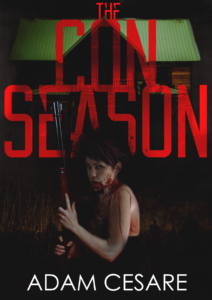 Guest columnist Adam Cesare is a horror author who’s written a bunch of novels, novellas, and short stories. His work has been anthologized in “Year’s Best” collections and praised by the likes of Fangoria, Bloody Disgusting, and Rue Morgue. His new novel, The Con Season, is in the last days of consideration for the Kindle Scout program, where if you nominate the book you’ll be eligible for a free copy if it’s published. You can find out more about him on his website, or listen to his appearance on the Modern Horror’s Podcast.
Guest columnist Adam Cesare is a horror author who’s written a bunch of novels, novellas, and short stories. His work has been anthologized in “Year’s Best” collections and praised by the likes of Fangoria, Bloody Disgusting, and Rue Morgue. His new novel, The Con Season, is in the last days of consideration for the Kindle Scout program, where if you nominate the book you’ll be eligible for a free copy if it’s published. You can find out more about him on his website, or listen to his appearance on the Modern Horror’s Podcast.
